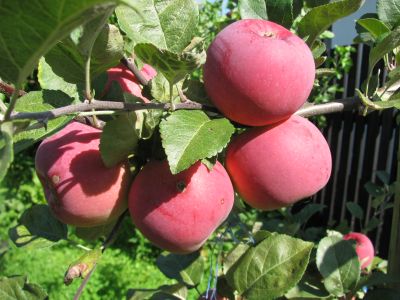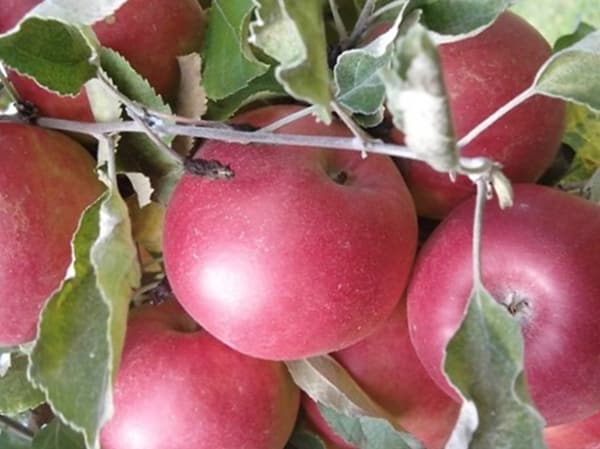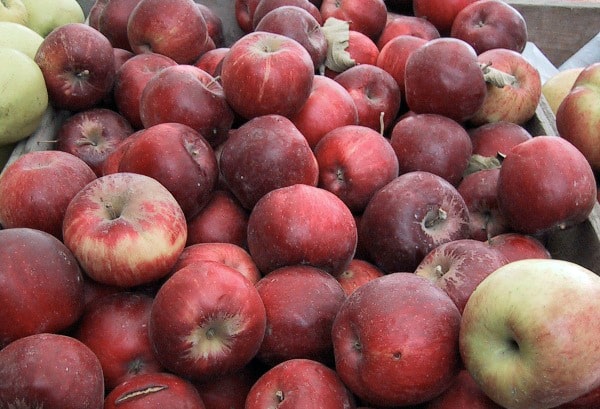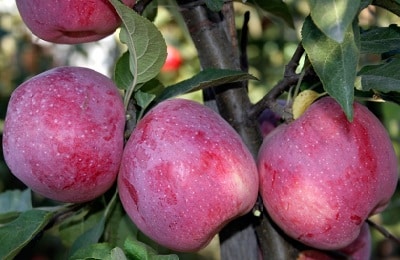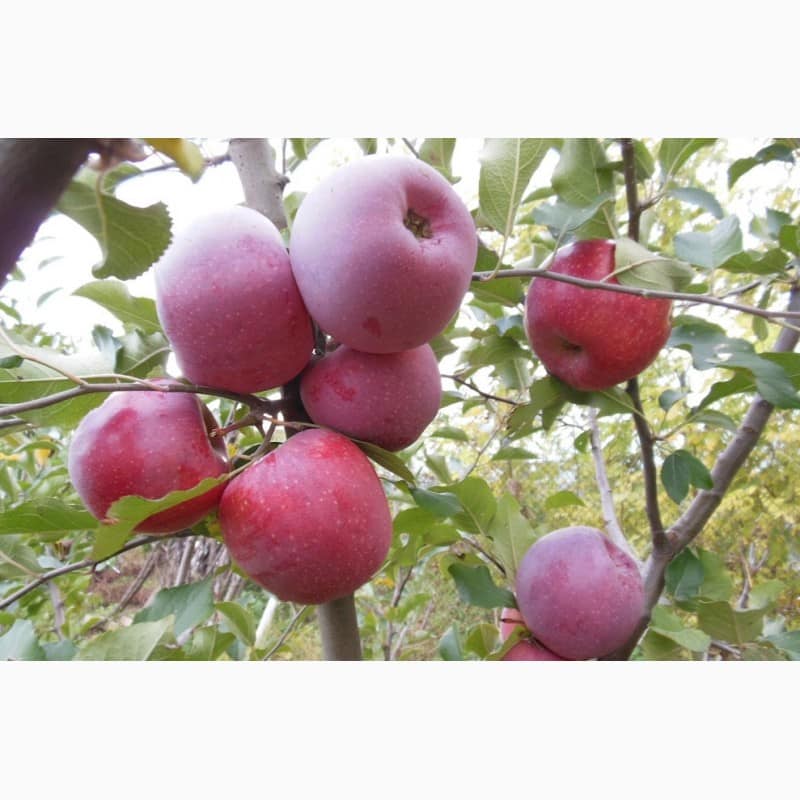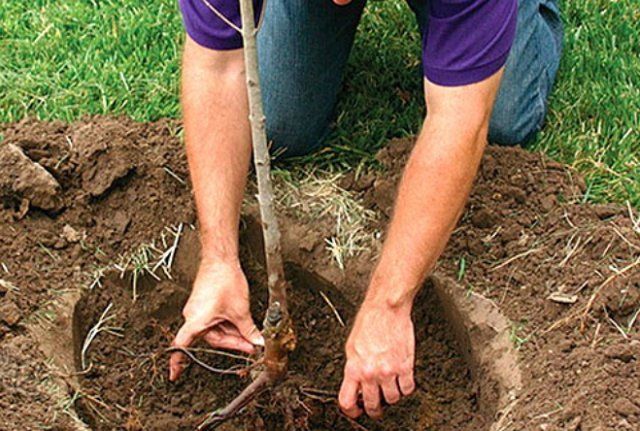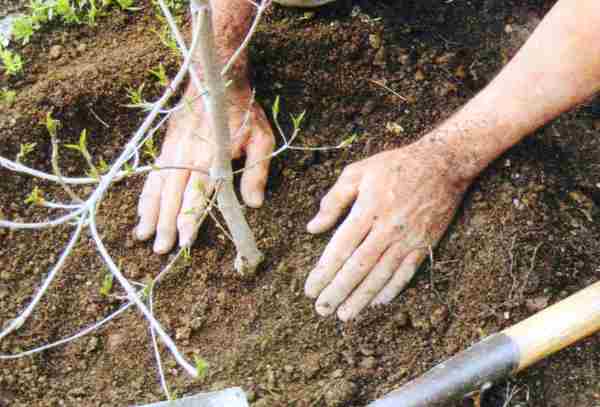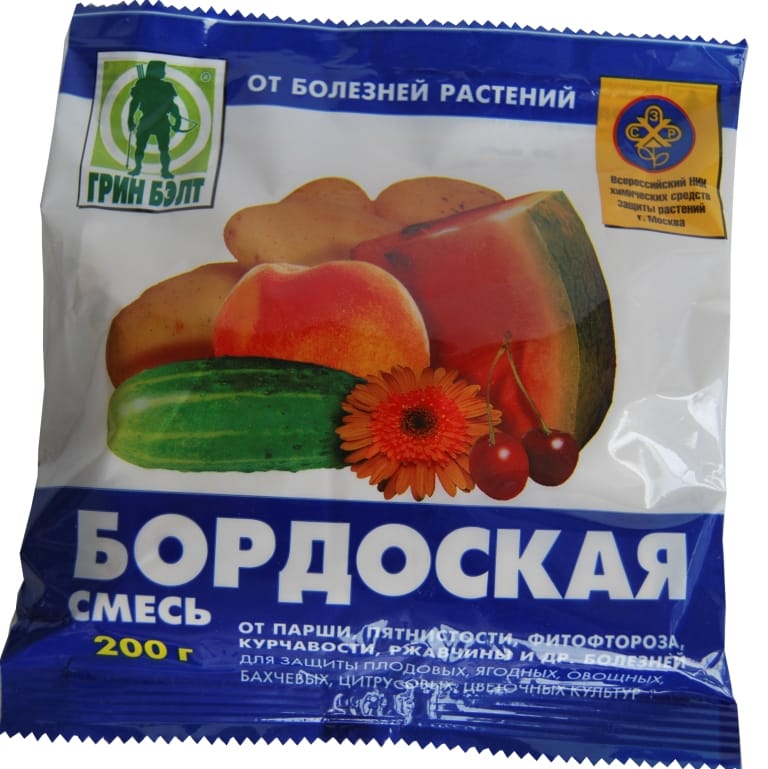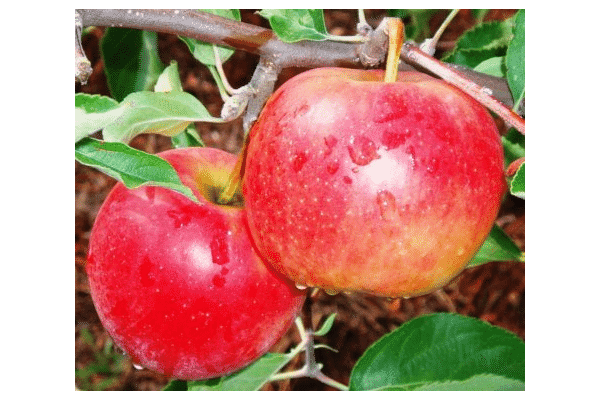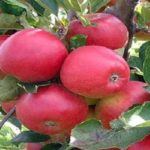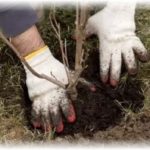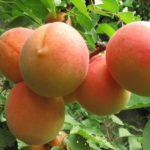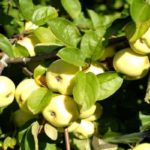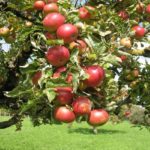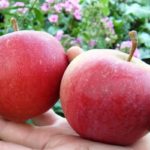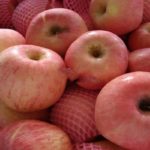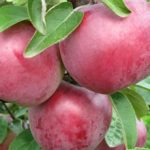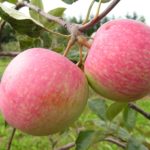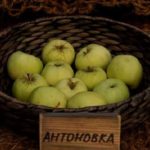Jonathan apples are still grown in many regions of Russia. This species gained the greatest popularity in the 80s. Now gardeners prefer to grow other varieties of this hybrid on their site due to its improved characteristics.
- History of the development of the Jonathan variety
- External description
- Trunk height
- Crown diameter
- Root system
- Appearance of the fruit and its taste
- Specifications
- Optimal climatic conditions
- Frost resistance
- In what areas is landing possible?
- Susceptibility to diseases and pests
- Pollination and self-fertility
- Apple ripening period
- Harvest and use
- Features of planting and growing
- Disembarkation
- The best time to plant a young tree
- Preparation of young seedlings
- Planting pattern and depth
- Irrigation mode
- Fertilizer
- Trimming
- Preventative treatment
- Preparing for winter
- Popular hybrid varieties
- Decosta
- Jonared
- King
- Jonagold
- Highlander
History of the development of the Jonathan variety
The Jonathan variety was first bred by a breeder from the USA. The new variety was based on the Ezon Spitzenburg seedling, which is currently impossible to find. The new variety was grown in a temperate climate with mild winters and warm autumns. Gradually, breeders created several clones of the Jonathan hybrid.
External description
The description of an apple tree includes the height of the tree, the size of its crown, the characteristics of the root system and the taste of the fruit.
Before choosing an apple tree seedling for your garden, it is recommended that you familiarize yourself with these characteristics.
Trunk height
The height of an adult tree can reach 2 m. Most often, the tree grows to medium size. This is considered an advantage because a shorter plant is easier to harvest.
Crown diameter
The shape of the crown resembles a circle. The density is average. At first glance, it may seem that the plant is not thickened. As they grow, the skeletal branches bend to the ground.
Root system
The root system is powerful and spreading. Due to its powerful rhizome, the apple tree does not need to be watered frequently in the summer.
Appearance of the fruit and its taste
The fruits are round in shape. The peel is rich red, the flesh is green-yellow. The skin is thin. Fully ripe apples have firm flesh. The mass of apples is 100-150 g.
Specifications
In addition to describing the tree, it is important to study the technical characteristics of the variety. For example, resistance to frost, in what climatic conditions to grow, pollination and a number of other characteristics.
Optimal climatic conditions
It is recommended to plant seedlings of the Jonathan variety in the southern or central region. In northern latitudes, where there are severe frosts, the tree will not be able to survive and will die due to the cold.
Frost resistance
Due to the weak bark, frost resistance is low. The apple tree can survive frosts down to -20 degrees.
In what areas is landing possible?
The Jonathan variety can be planted in any region where winters are moderate or warm. Otherwise, there are no restrictions on the growing region. For some summer residents, even in the north, the apple tree survives the winter.
Susceptibility to diseases and pests
The Jonathan hybrid has low immunity to powdery mildew. Average resistance to scab and bacterial cancer. With proper care, the occurrence of these diseases can be avoided.
Pollination and self-fertility
The Jonathan apple tree hybrid is self-fertile. To increase productivity, pollinating apple trees are planted next to the tree:
- Spartan;
- Mac;
- Uman winter.
Neighborhood with other apple trees will significantly increase the number of inflorescences and ovaries.
Apple ripening period
The tree begins to bear fruit in the 5th year after planting the seedling. The fruits are harvested from mid-September until the first days of October.
Harvest and use
It is recommended to pick apples before they fall to the ground. Apples are used to make jams, preserves, compotes, and used for baking.
Features of planting and growing
As you know, planting is an important stage in the formation of the future harvest. It is necessary to take into account all the pros and cons of autumn and spring planting of seedlings, planting technology and many other nuances.
Disembarkation
Before planting an apple tree seedling, prepare the tree and soil.It is advisable to prepare the soil for planting 2-3 weeks in advance.
The soil is dug up, covered with manure, wood ash and mineral fertilizers. A stake is driven into the center of the hole.
The best time to plant a young tree
Seedlings are planted twice a year - in spring and autumn. Most summer residents prefer autumn planting. Over the winter, the seedling will have time to take root, and in the spring it will begin to grow with renewed vigor. You can plant in the spring if there is no other choice.
Preparation of young seedlings
Before planting, the rhizome of the seedling is soaked for 10 hours in a growth activator. Immediately before planting, the root system is dipped into a liquid clay solution and planting begins.
Planting pattern and depth
The distance between trees is left at least 4 m. It is important to plant seedlings so that the crown does not interfere with other trees. It is recommended to plant the Jonathan apple tree to a depth of at least 1 m. Place the seedling in the center of the hole, cover with soil and water generously with warm water. Tie the tree to a stake.
Irrigation mode
Water the tree during bud break. The second watering is during the formation of ovaries. The apple tree is watered for the third time during fruiting. The fourth time - before preparing the apple tree for winter.
Fertilizer
The periods of fertilizing coincide with watering. At the beginning of the season, nitrogen and organic matter are added to the soil. In the second half, when the formation of ovaries begins, the soil is fertilized with phosphorus, potassium, manure, and wood ash. Before cold weather, nitrogen should not be added to the soil.
Trimming
Sanitary pruning is carried out annually in the fall. Remove dry and diseased branches. In the spring, some of the young branches are cut off, leaving a few skeletal branches and young shoots.
Preventative treatment
Bordeaux mixture or copper sulfate is used as a preventative spray.
Preparing for winter
A month before the onset of cold weather, they stop watering the apple tree. In late autumn, the soil near the trunk is mulched.
Popular hybrid varieties
Breeders have developed several clone varieties of the Jonathan apple tree.
Decosta
Frost resistant. A productive variety. The fruits are a rich red color.
Jonared
Medium sized fruits. The crown is oval-shaped, thickened. It is highly resistant to scab and powdery mildew.
King
Another name for the Decosta apple tree variety.
Jonagold
Another name for the Decosta variety.
Highlander
Jonagored is considered the best apple variety in England. The fruits are oval-shaped, the peel is bright red with a waxy coating. The variety is characterized by high productivity.

